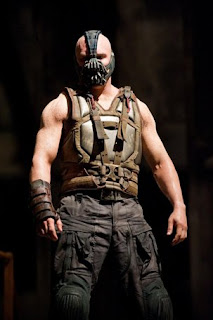BLINDED BY THE WHITE: IS THE FEEL-GOOD FILM A WHITE SAVIOR NARRATIVE?
*MAJOR SPOILERS AHEAD FOR BLINDED BY THE LIGHT (and GREEN BOOK)*
I felt a real bond with Spike Lee when Julia Roberts announced Green Book as the best film of 2018. You can see him here jumping up, looking like the grape mascot from the Hanes commercials, fuming in his aisle, his blaxploitation crime thriller BlacKkKlansman just having won him his first Oscar for Adapted Screenplay. It was a short-lived victory for Spike, because Green Book (the next entry in the Driving Miss Daisy cinematic universe, my friend joked) has been accused of perpetuating the stereotype of the white savior film. And the bippidy-boppidy Italian stereotype that Viggo Mortensen portrayed. Like your favorite $6 plate of lasagna from your local Italian restaurant (maybe Mario's? maybe something with "La" in the title), Green Book went down easy with a lot of familiarities, no harmful spices. The white driver has Christmas dinner with the black musician! So long racism, you had your day in the sun.
That was in February, so why did at the end of this summer did that white savior lasagna taste come back in my throat? Perhaps it's because another Italian is saving the day, except this time it's Bruce Springsteen. Now, granted, I relate strongly to Javed, the main character of Gurinder Chadha's new movie Blinded by the Light. The Boss did save me on many a school day from falling into the depths of teen angst through his blue collar anthems, his close-to-home Americana lyricism and infectious synths. Finding fellow Millennials who appreciate him is also a challenge, and I clutched my chest in pain when Javed was told time and again that only parents listen to Springsteen, that he's for old people. But what good is a private liberal arts education and a minor in film studies good for if I don't start looking for how white people ruin a movie?
My argument: all of Javed's joy comes from the Caucasians.
- There's his best friend Matt, who he writes lyrics for. Matt gets really upset at Javed when Javed knocks the terrible 80s music Matt listens to.
- There's his teacher Ms. Clay, who portrays the TRIED TO DEATH cliche of white teacher that sees the potential in the person of color, the world needs to hear your voice, Javed. I'm going to really hone in on you and give my other students the cold shoulder.
- There's his love interest Eliza. A scene where Eliza takes Javed to meet her Tory parents piqued my interest when Eliza's mother said something along the lines of "Eliza's always bringing home somebody to shock her father to death." Of course Eliza says, "Oi mum what's so different about Javed?" Cue the audience crossing their arms in satisfaction. Racist parents are racist. What if Eliza said, "Yeah, I have a habit of doing that." This complicates Eliza, and their relationship. Is Eliza just using Javed as a token brown person to scare her parents? Does she have internalized racism using POC to show her parents how progressive she is? Nope. Racist parents are racist.
- There's Bruce. This one I'm more lenient on. People all over the world are touched by musicians from countries they'll never visit. The fact Javed visits New Jersey in a serendipitous moment is one of the cutest segments of BBTL. My first musical love was dancehall king (turned pop sellout) Sean Paul, hailing from Kingston, Jamaica.
Mr. Khan is the disapproving immigrant dad, Mrs. Khan the submissive (but ooh a little fiery) wife. He has two sisters. The movie decides he needs to bond with one of them, through one line of dialogue ("Yeah my older sister and I are pretty close") even though they're never shown to have a fun, music video moment. The fact this is what a lot of media portrays Indian households as shouldn't matter because hey, if this happened to the real guy (journalist Sarfaz Manzoor, co-writer of the project) why shouldn't it be included? This is going to be the most difficult part of this essay: some stories don't exactly need to be told.
I know that goes against everything you're told in your creative writing high school class, I know it's told in Javed's English class. But when your story (which I'm sure is also fictionalized) can be molded into such a tired, problematic narrative, you have to ask: is there a way to tell this story in a fresher way? Could Green Book have come from the perspective of the closeted, acclaimed Dr. Shirley and not...some Italian guy who drives him around? Shirley LITERALLY took the backseat in a movie that should've been about him. We've seen BBTL's story in Freedom Writers, Dances with Wolves and The Blind Side. It's just a lot more obvious in those particular films. As well intentioned as it was, the white savior complex still rears its head in subtle ways. Watch out Kevin Feige, because the Driving Miss Daisy cinematic universe is growing.



Comments
Post a Comment